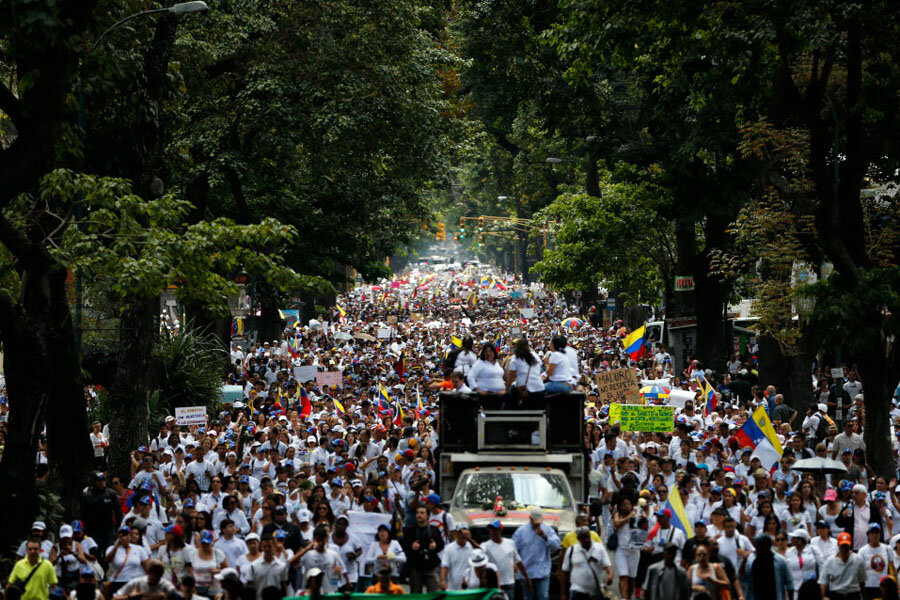Who is leading Venezuela's protests?
Loading...
• David Smilde is the moderator of WOLA's blog: Venezuelan Politics and Human Rights. The views expressed are the author's own.
In today’s Latin America Advisor, David Smilde and other experts respond to questions about the ongoing protests in Venezuela. To read the article in its original context, please click here.
Latin America Advisor:
Deadly protests, the largest since President Nicolás Maduro’s election last year, have wracked Venezuela in recent weeks. The demonstrations were punctuated on Feb. 18 by the arrest of opposition leader Leopoldo López, who had been organizing the protests. Why did these protests erupt now, and why did they turn deadly this time? Does the situation pose a threat to Maduro’s government? How will López’s jailing affect the opposition?
David Smilde:
Like any protest wave, the sources are multiple.
The basic motor of these protests has been students, protesting against the criminalization of protest and in favor of freedom of expression. The movement was latched on to and fueled by radical elements of the opposition who were not in agreement with their coalition’s more moderate line aimed at growing the opposition coalition and negotiating with the government. Leopoldo López and others pushed forward with street protests seeking Maduro’s resignation.
In a couple of the protests, larger swaths of the opposition base have hit the streets to raise their voices as well. Protests in Venezuela frequently involve violence. Protestors themselves engage in (usually non-lethal) violence. The National Guard, which works to control the protests, has inconsistent professional standards. Mix that in with pro-government but semi-autonomous armed collectives, and it is a perfect recipe for violence.
I doubt it was ordered from the top, but suggestions made by Maduro and Chavista governors about the defense of the revolution can easily be interpreted by followers as a green light for violence. The government could control it by sending crystal-clear messages to its followers and making sure that security forces work protests without lethal weaponry.
The protests seem to be dying down and are focusing on ‘guarimba’ tactics in which small groups of people block off streets to disrupt daily life. They likely will not end as long as the government and government supporters continue to repress them.
At the present the protest movement is really leading the actions of opposition politicians rather than the other way around.







